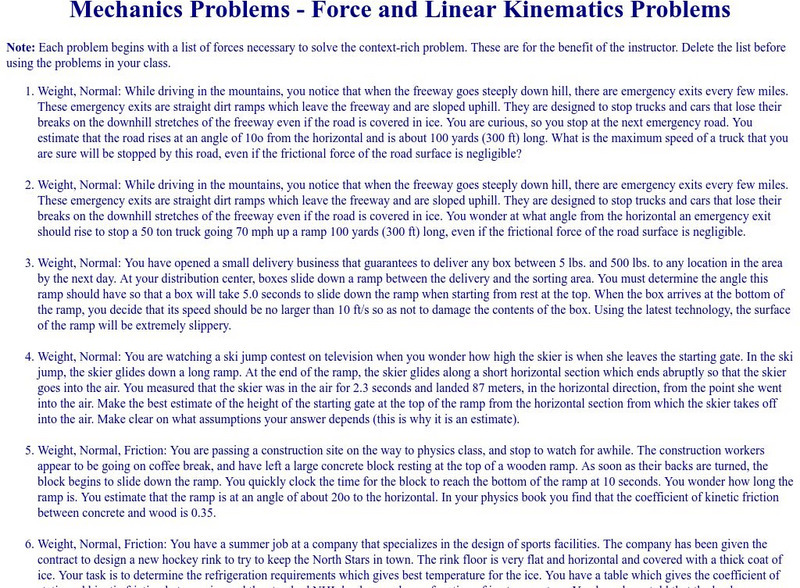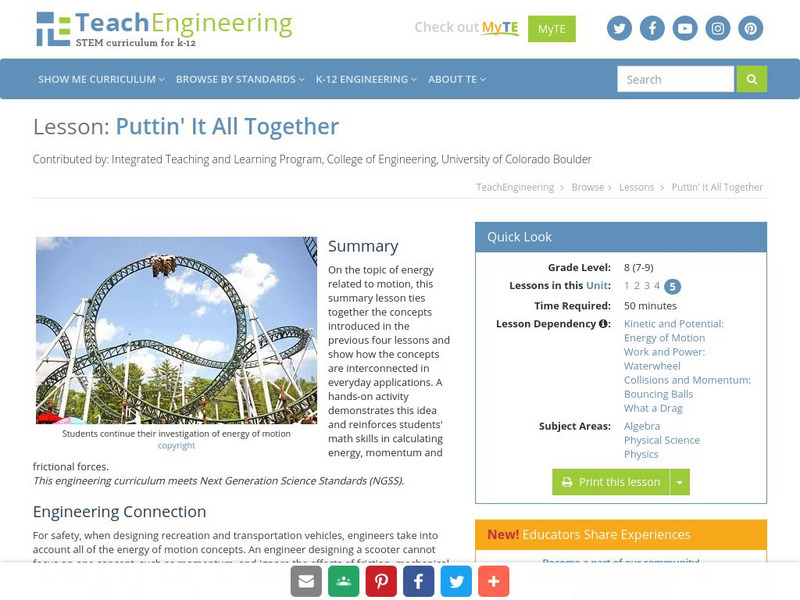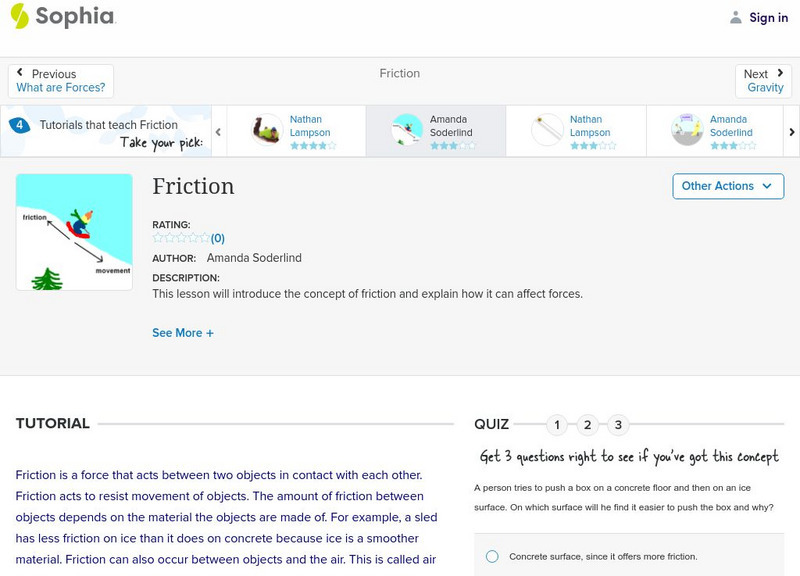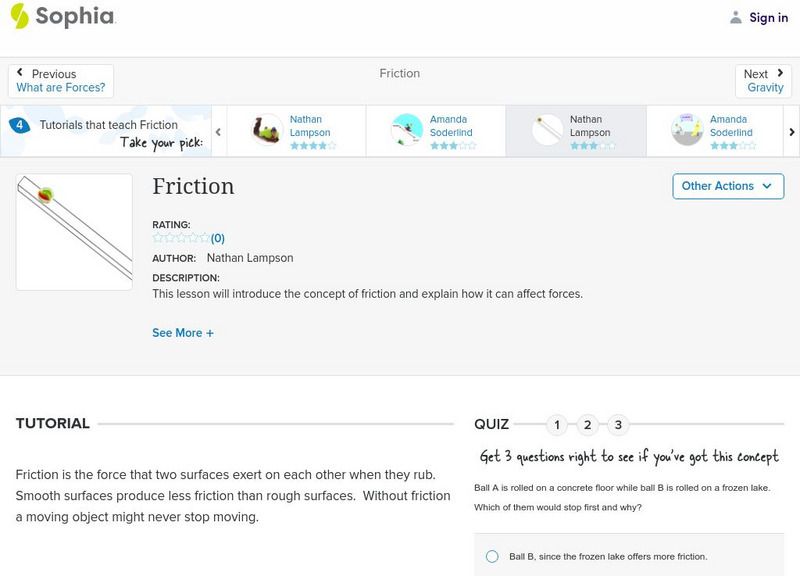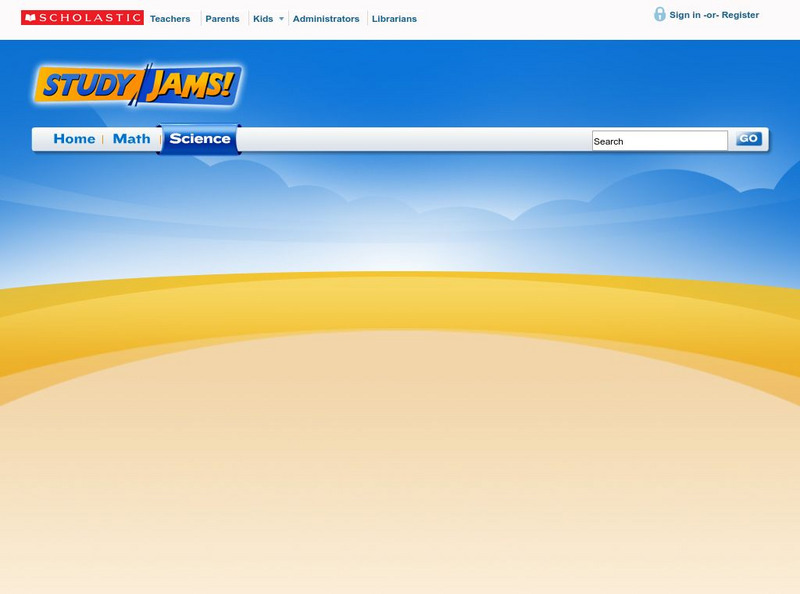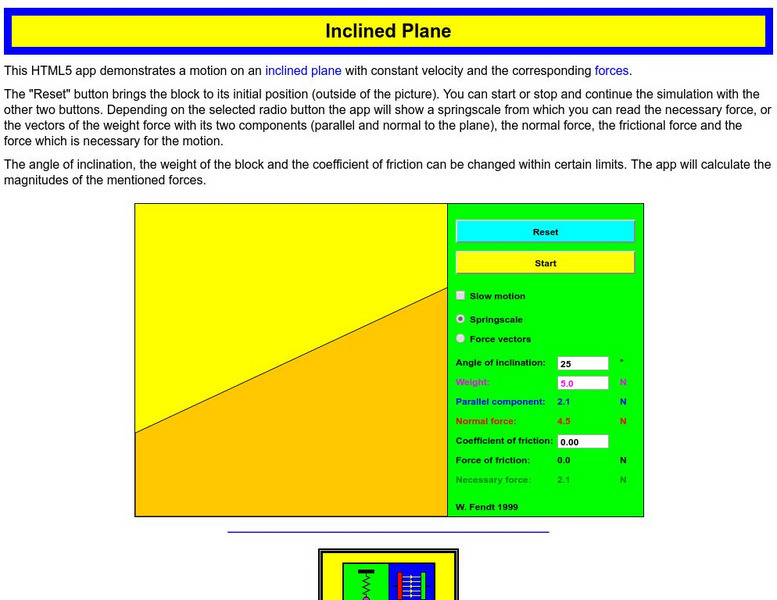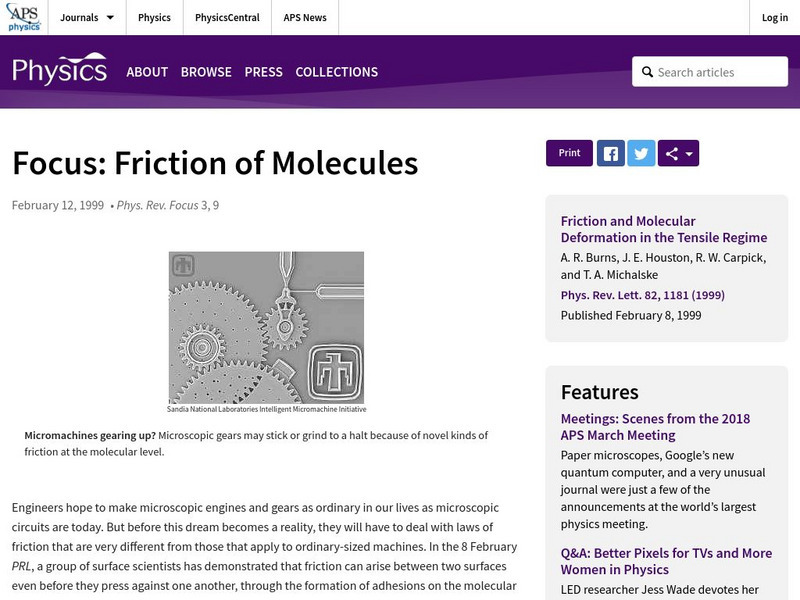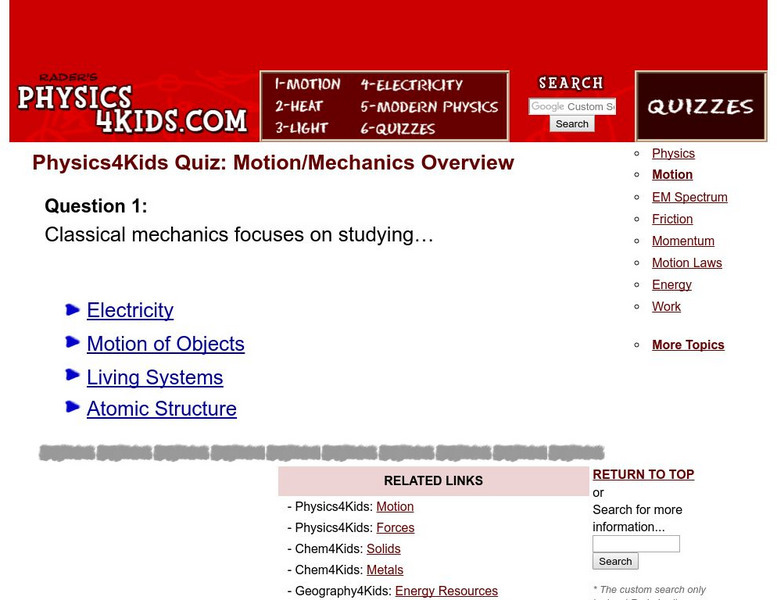Science Education Resource Center at Carleton College
Serc: Inertia: An Object in Motion Will Tend to Stay in Motion
This activity is a take off of Galileo's experiment with the inclined planes to show that an object in motion would stay in a straight line motion if no outside forces acted were acting on it. In this version, students will roll a ball...
Physics Aviary
Physics Aviary: Practice Problems: Motion on Incline Level 2
Students must calculate the distance an object will move up an incline using Newton's Laws. Mass, angle, gravitational field, coefficient of friction and initial speed will be generated randomly.
Physics Aviary
Physics Aviary: Practice Problems: Motion on Incline Level 3
Students must calculate the speed of a block when it returns to its original location on an incline using Newton's Laws. Mass, angle, gravitational field, coefficient of friction and initial speed will be generated randomly.
Science Education Resource Center at Carleton College
Serc: Newton's Second: Having a Ball With Motion
Students will create a gravity ball launcher to demonstrate their understanding of mass, force, momentum, and motion. The students will use critical thinking, measurement, and observation and analysis of data to make changes and improve...
Science Education Resource Center at Carleton College
Serc: Investigating Motion: What Causes Objects to Move?
Students will have an opportunity to determine what makes everyday objects move. Students will be given objects and asked to make predictions on how far each object will move after they blow on it. Then they will measure the distance and...
Science Education Resource Center at Carleton College
Serc: Investigating Projectile Motion: Creating a Catapult
This activity is for 9th grade physical science students. It begins with an inquiry-based activity using a projectile motion computer simulation. It culminates with students building a catapult; applying and connecting science knowledge...
University of Minnesota
University of Minnesota: Mechanics Problems: Force and Linear Kinematics Problem
This University of Minnesota site provides a series of contextually rich problems pertaining to force, Newton's second law of motion, and linear kinematics.
Science Education Resource Center at Carleton College
Serc: Investigating Forces: Balloon Car Activity
In this activity, teams of students build a car out of common materials which is then propelled by the release of air out of a balloon and must travel a minimum distance. The activity is then extended to a competition to build the car...
CK-12 Foundation
Ck 12: Plix Series: Friction
[Free Registration/Login Required] Use given friction formulas and an interactive diagram for an inclined plane to solve a motion problem. After the activity, answer a challenge question to check for understanding.
TeachEngineering
Teach Engineering: What a Drag
Students learn about friction and drag - two different forces that convert energy of motion to heat. Both forces can act on a moving object and decrease its velocity. Students learn examples of friction and drag, and suggest ways to...
TeachEngineering
Teach Engineering: Puttin' It All Together
On the topic of energy related to motion, this summary lesson is intended to tie together the concepts of work, power, collisions, momentum and drag. A hands-on activity demonstrates this idea and reinforces students' math skills in...
Sophia Learning
Sophia: Friction: Lesson 2
This lesson will introduce the concept of friction and explain how it can affect forces. It is 2 of 5 in the series titled "Friction."
Sophia Learning
Sophia: Friction: Lesson 3
This lesson will introduce the concept of friction and explain how it can affect forces. It is 3 of 5 in the series titled "Friction."
Science4Fun
Science4 Fun: Force
What is force? Illustrated discussion of how force is calculated and three familiar types.
Other
Wikibooks: Physics Study Guide
A handy resource that gives an overview of equations and definitions pertinent to an introductory, college-level physics course, with two of its three sections focusing on motion-related topics and principles.
Scholastic
Scholastic: Study Jams! Science: Forces and Motion: Acceleration
A video and a short quiz on acceleration.
Walter Fendt
Walter Fendt: Inclined Plane
This site is an interactive app of an inclined plane showing the effect of the angle, the weight of the block, and the friction as a block is pulled up an incline.
My Science Site
Forces and Motion [Pdf]
This resource provides reproducibles that aide in student learning of force and motion. Also offers hands-on and cooperative learning activity ideas as well as an ESL/ELD activity. This resource is in PDF form; requires Adobe Reader.
Other
Focus Physical Review: Friction of Molecules
This is an article published by the American Physical Society on friction in microscopic gears that results from the adhesion of molecules. A great exploration of this new obstacle in science.
Physics4kids
Physics 4 Kids: Motion/mechanics Overview Quiz
Take this ten question multiple choice quiz on motion and mechanics.
TeachEngineering
Teach Engineering: Sliding Textbooks
In this culminating activity of the unit which highlights how forces play a role in engineering design and material choices, students explore and apply their knowledge of forces, friction, acceleration, and gravity in a two-part experiment.
Khan Academy
Khan Academy: What Is Newton's First Law?
Newton's First Law also called the law of inertia is the most important thing to realize about motion. This article offers more information on motion and explains solved problems involving Newton's First Law. Also included is a video...
TeachEngineering
Teach Engineering: Red Light, Green Light
Building upon their understanding of forces and Newton's laws of motion, students learn about the force of friction, specifically with respect to cars. They explore the friction between tires and the road to learn how it affects the...
Physics Classroom
The Physics Classroom: Inertia and Mass
This is part of a lesson on Newton's Laws of Motion that focuses on inertia and mass. It restates Newton's first law of motion. The lesson also gives a helpful visual description concerning friction.





